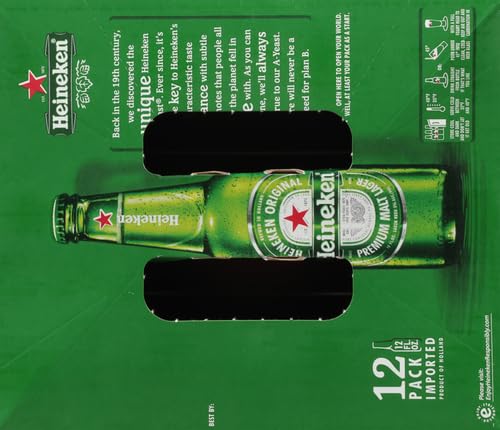






Heineken 6 pk, 12 oz Bottles, 5% ABV
Category: holsten beer

Bottle Fees May Be Applied to Price
In many countries, consumers are often faced with the additional cost of bottle fees when purchasing beverages. These fees, which are typically added to the base price of the product, are designed to encourage recycling and responsible disposal of used containers.
The rationale behind bottle fees is that they provide an incentive for consumers to return their empty bottles to designated collection points, where they can be properly recycled or reused. By doing so, the burden of waste management is shifted from the government or the beverage companies to the consumers themselves.
The fees are usually quite small, often ranging from a few cents to a dollar or more, depending on the size and material of the bottle. While this may not seem like a significant amount, the cumulative impact can be substantial, especially for consumers who purchase large quantities of bottled beverages.
One of the primary benefits of bottle fees is their ability to reduce the amount of waste that ends up in landfills or the environment. When consumers are charged a fee for each bottle they purchase, they are more likely to make the effort to return them for recycling or reuse. This can lead to a decrease in the overall volume of waste, as well as a reduction in the consumption of natural resources needed to produce new bottles.
Additionally, bottle fees can help to generate revenue for recycling and waste management programs. The funds collected from the fees are often used to support the infrastructure and logistics required to collect, sort, and process the returned bottles. This can help to offset the costs associated with these activities, making it more financially viable for municipalities and waste management companies to implement effective recycling systems.
However, the implementation of bottle fees is not without its challenges. Some consumers may view the additional cost as an unnecessary burden, particularly in cases where the fees are perceived as being too high or disproportionate to the value of the container. There may also be concerns about the fairness of the system, as some consumers may be more financially able to absorb the fees than others.
Moreover, the effectiveness of bottle fees can vary depending on the specific design and enforcement of the program. If the fees are not set at the right level or if the collection and recycling infrastructure is not well-established, the desired impact on waste reduction and recycling rates may not be achieved.
Despite these challenges, many governments and beverage companies have embraced the bottle fee model as a way to promote environmental sustainability and responsible consumption. As awareness and concern about the environmental impact of single-use plastics and other packaging materials continue to grow, it is likely that the use of bottle fees will continue to expand in the years to come.
product information:
| Attribute | Value |
|---|---|
| product_dimensions | 5 x 8 x 9.25 inches |
| item_weight | 7 pounds |
| manufacturer | Heineken |
| item_model_number | 072890000118 |
| is_discontinued_by_manufacturer | No |
| date_first_available | April 9, 2008 |

















